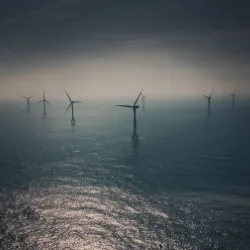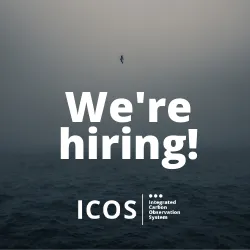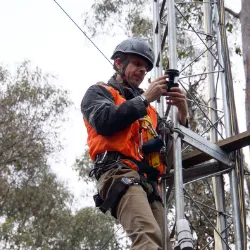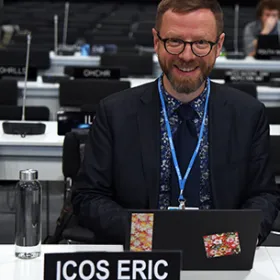
The aim of the ICOS Ocean Thematic Centre (OTC) is to support the 20+ ICOS ocean stations to deliver the data that is needed to better quantify the oceans role in carbon cycling. OTC releases a community newsletter four times a year and the latest issue has just been published.
Some of…
Read more
Around 500 researchers, 140 stations, 80 universities and institutes, and 13 countries. That’s just some numbers to give an idea of the vast research network called ICOS. What it takes to ensure efficient and smooth cooperation and operation within the network to provide standardised and high-…
Read more
Around 500 researchers, 140 stations, 80 universities and institutes, and 13 countries. That’s just some numbers to give an idea of the vast research network called ICOS. What it takes to ensure efficient and smooth cooperation and operation within the network to provide standardised and high-…
Read more
ICOS Carbon Portal is looking for a Software developer to reinforce their development team. ICOS Carbon Portal offers open access to all ICOS high-quality and standardised greenhouse gas data, as well as scientific and educational products produced by our scientific users. The Carbon Portal is…
Read more
ICOS has a strong observational network producing reliable, high quality data. It is well positioned in the European Research Area and is the European pillar of a global information system on greenhouse gases. It participates in a number of externally funded Horizon 2020 which include…
Read more
Earlier this year a scientific study using data collected at ICOS Ecosystem stations was published at Biogeosciences, a scientific journal of the European Geosciences Union. While the main focus of the study was on forest floor vegetation, the researchers also showed that ICOS forest…
Read more
To celebrate Dr. Emmanuel Salmon continuing as the head of Strategy and International Cooperation (SIC) at ICOS ERIC we wish to highlight the important role the SIC unit plays to help ICOS continue to grow as a key organisation in global climate research and policy.
The SIC…
Read more
ICOS has recently submitted an EU H2020 project proposal for developing greenhouse gas measurements in cities. The project is called PAUL, “Pilot Application in Urban Landscapes towards integrated city observatories for greenhouse gases”. It supports the European Green Deal, as cities are…
Read more
What are the cracks of knowledge on the Arctic sea-ice? What part does the sea-ice play in climate models? What makes little green algae inside the ice so important to the whole Arctic?
Recent study published in the Nature Climate Change scientific journal shows that the loss of the Arctic…
Read more
ICOS is coordinating an EU H2020 project proposal on developing greenhouse gas measurements in cities. The goal is to demonstrate the ability to integrate complementary measurements systems and methods as well as data.
An open nomination process for a pilot city resulted in seven…
Read more